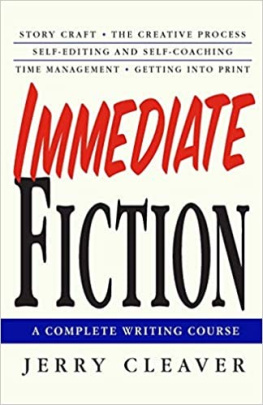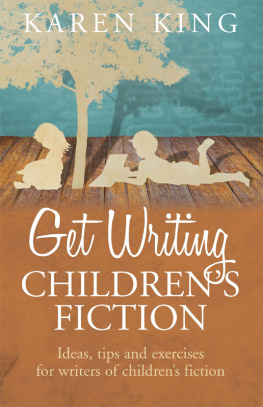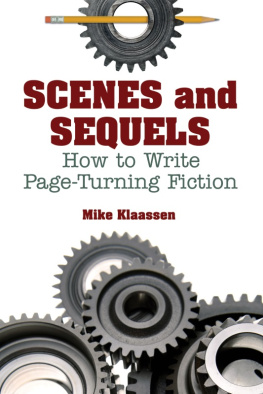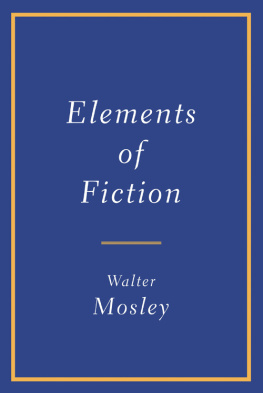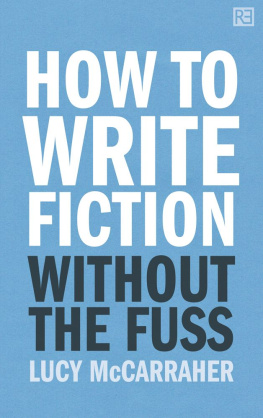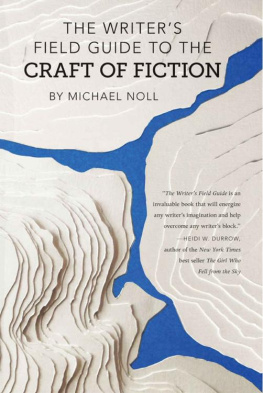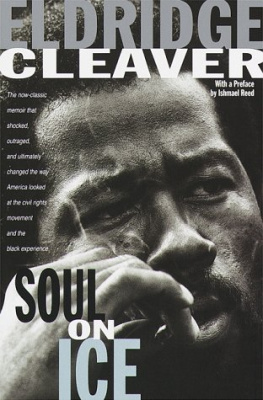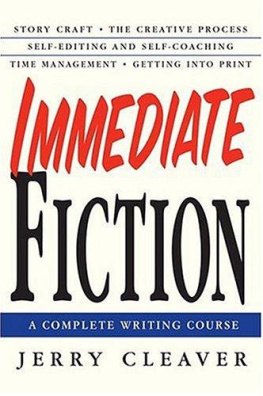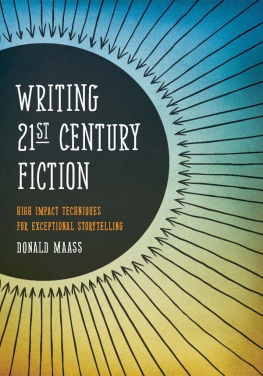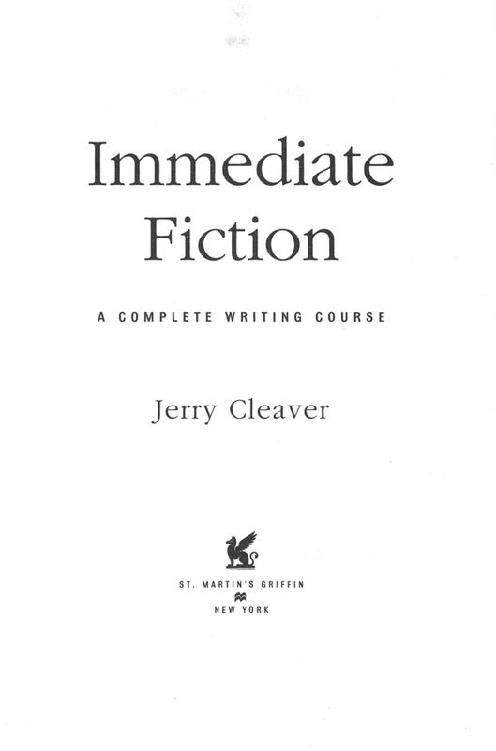ACKNOWLEDGMENTS
Thanks to :
Frank Anselmo, my partner in crime.
Joe Hanley, catalyst, supersalesman.
Stanley Majka, editor, friend.
My wife, Leslie, my son, Matthew,
and my students.
Special thanks to:
Susan Reich, Hugh Schulze,
Elizabeth Brown, Helen Valenta, and my
editor, Michael Denneny, and Christina Prestia.
A good story cannot be denied. Like falling in love, its irresistible. It hits you before you have time to think. It touches your heart before it reaches your head. Youre drawn inwhether you want to be or not. And you dont stand around asking, Is it good? or Is it real? These questions dont even come up. Ive been walking through a room where a dramatic scene is playing on the TV, and been struck by a single line, a line that pulled me into the story. I have to stop and see what is happening. Thats the kind of story youll learn to write in this course.
The craft and techniques of Immediate Fiction are those used by all great writers. Whether a story is true or not doesnt matter. The craft is identical. A good story creates an experience and puts you in it, living and feeling it as if you were there.
All of this were calling Immediate Fiction, because good stories are immediate. Theyre happening here and now, around you and in you, in the moment. But this is also about crafting and creating stories and about how to get yourself to sit down and do it. With Immediate Fiction, you will begin writing immediately, the moment you sit down. There are even techniques to help you sit down. And dont think gettingyourself there and sitting down cant be a problemeven for the best of writers. Ninety percent of life is showing up, the saying goes. Immediate Fiction will make it easy to show up.
After you do sit down, you wont be wasting time wondering what to do or where to start or how to get in the mood. You dont have to be in the mood or wait for inspiration or the Muse to strike, because with this method the Muse is you. Youll learn how to become your own Muse and not waste time looking for magic to come from somewhere outside yourself.
Immediate Fiction is the craft of story, but its also the craft of self finding what you have and making it work for you. So, its immediate in two ways. What you create is immediate, and how you create is immediate. Youre creating immediate fiction immediately.
One thing its important to be aware of at the outset is that no problem is too small to paralyze you, and none is too big to be conquered. Problems are as big or as small as you make them. Writers have a knack for magnifying tiny troubles into great obstacles. So, if youve been doing that, dont worry. Youll learn how to get out of it.
This course is laid out with first things first. Follow it straight through, and youll do fine. Each part starts with the theory behind what were setting out to accomplish. The theory gives you a deeper sense of how things work. The first chapter covers the creative processwhat to keep in mind to stay out of trouble. Chapter 2 is a short exploration of stories (the why of storywhy every reader reads, why every writer writes). That flows right into chapter 3, the actual craft and technique of creating storieshow to do it how, what, when, and where. You start writing at the end of chapter 3, with exercises designed to uncover what you have and tap into the drama in your ideas. Each chapter has its own set of writing exercises at the end.
Since each chapter flows into the next, you dont need to skip around, but if youre dying to get into the heart of putting a story together,go straight to chapter 3. Chapter 4 refines the story elements more precisely, making it even easier to breathe life into your story. Chapter 5 covers self-editing, staying on track, avoiding pitfallsfiguring out what you have and what to do with it. Capturing emotion on the page, and evoking it in the character and the reader, are covered in chapter 6. Chapter 7 covers the basic technique for creating the experience on the page in full scenes. Chapter 8 moves into expanded rewriting techniqueswhat to do when you go back over your work. Work methods, different ways of approaching your story, are covered in chapter 9. Originality (what is it? how do you achieve it?) is covered in chapter 10. That chapter also explores universal plot forms. Chapter 11 covers point of view. If you feel you have no time to write, chapter 12 will show you how to get going in just minutes a day. Chapter 13 covers extraneous concepts and methods that often confuse the issuewhat you can do without. Chapter 14 explores the difference between a short story and a novel and how you can turn any short story into a novel. If youre seriously blocked, go straight to chapter 15. Chapter 16 shows you how to turn your story into a stage play or screenplay if either is your goal. Chapter 17 covers what you need to know to market your workhow to submit, where to submit, agents, publishers. Even though the chapters are arranged in a specific order, each stands alone and deals with its topic completely.
THE ROAD TO HERE
Id like to tell you how I got here. Its important because I did get here and even more important because many dont many who could and should, but dont through no fault of their own. Its a trip along a tangled path, one you may be on already, one that may have led you to this very course. Its one you will avoid if you havent set out upon italready. My journey isnt about me as much as it is about the world of writing and the teaching and learning of writing.
I took my first writing course at night at a junior college in Chicago. I took it just to pick up a few credits while I was working and saving money to go back to college full-time. I had no idea what I was doing in the writing class, but I had a lot of energy, and I had no conceptions or misconceptions because I had almost no literary background. The teacher and the class liked my writing. I was thrilled and started thinking that maybe, someday, after I got a degree in a sensible subject, I would do some writing. Our night class produced the first literary magazine in the Chicago junior college system.
I went back to school full-time at the University of Illinois, majoring in psychology but writing in my spare time. After a year, I took another writing class, taught by a professor who was a well-known author. I was excited and eager, a serious student ready to be molded into a successful writer by this literary expert. Now that Id been writing awhile, I was full of questions: Why was it I kept starting stories I couldnt finish? Why did my clear ideas so often drift off into tangled messes? What should I do when a story I was writing that was full of energy and drama suddenly shut down and stopped dead before my eyes, never to rise again?
Unfortunately, the professor had few answers. He told us little about how stories work. Write a twenty-five-hundred-word story for next week, he said. The following week he proceeded to take our writing apart, telling us what was wrong with it, but little about how to fix it. At the end of the course I had more questions than I had when I started, including: Was it beyond me? Was I just too dense?
The next time I had an elective, I took another writing course from a different professor. By now I had formulated my confusion a touch more. I kept wondering, Does it have to be this hard, this vague, this disorganized? I couldnt figure out if the problem was I just wasntgetting it or they just werent giving it. It seemed like guesswork, trial and error, hit or miss, with no real guiding principles or techniques. Does everybody do it this way? I asked in class one day.

